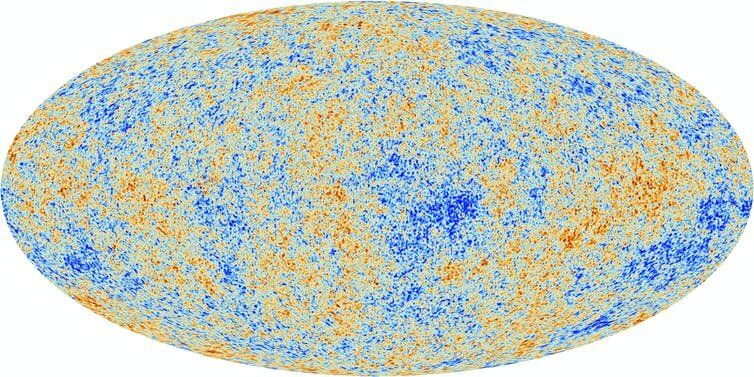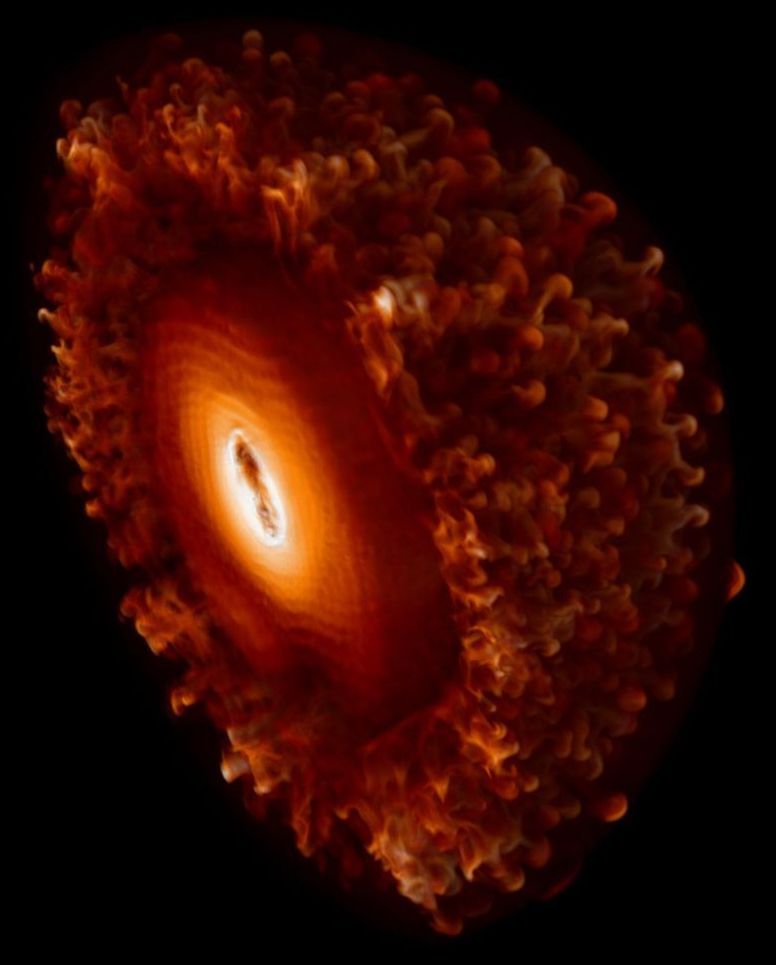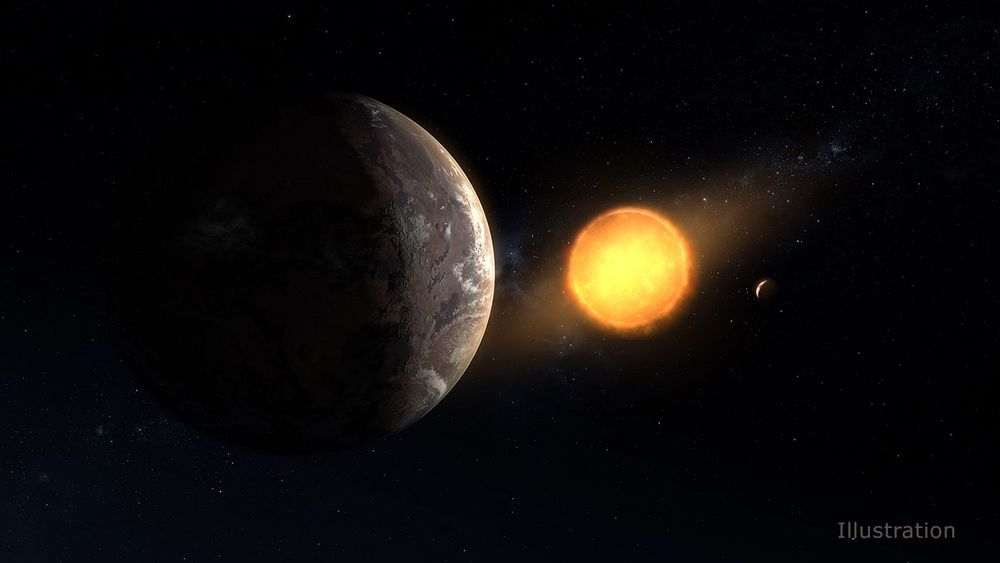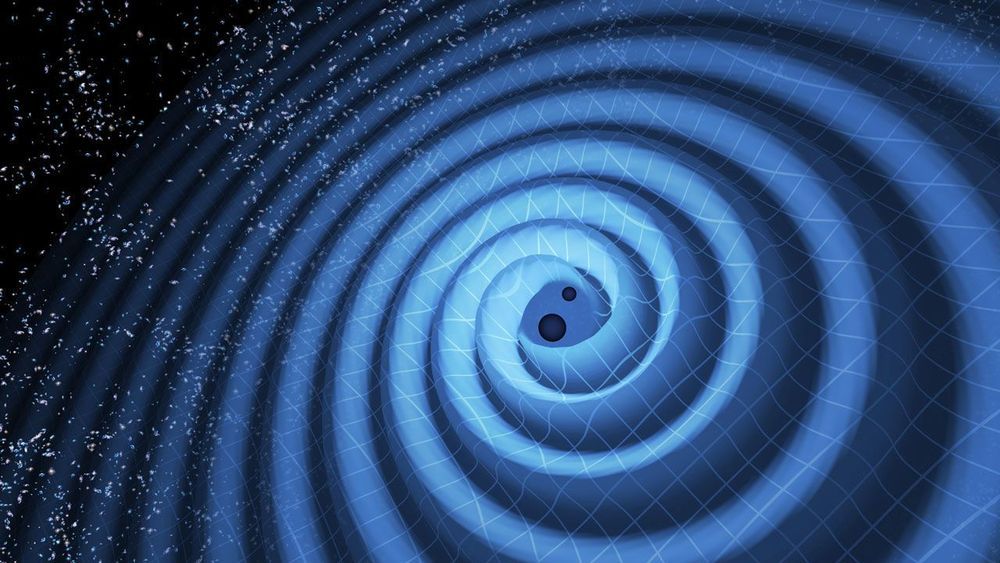Astronomy & Astrophysics (A&A) is an international journal which publishes papers on all aspects of astronomy and astrophysics.


The closest black hole to the Earth has been discovered just 1,000 light years away — near enough to see its companion stars with the naked eye on a clear night.
Located in the constellation of Telescopium, the hole forms part of a so-called ‘triple system — one named ‘HR 6819’ — with its two accompanying stars.
The presence of a hidden black hole in HR 6819 was discovered by researchers from the European Southern Observatory (ESO)’s La Silla Observatory in Chile.



Bochum cosmologists headed by Professor Hendrik Hildebrandt have gained new insights into the density and structure of matter in the universe. Several years ago, Hildebrandt had already been involved in a research consortium that had pointed out discrepancies in the data between different groups. The values determined for matter density and structure differed depending on the measurement method. A new analysis, which included additional infrared data, made the differences stand out even more. They could indicate that this is the flaw in the Standard Model of Cosmology.
Rubin, the science magazine of Ruhr-Universität Bochum, has published a report on Hendrik Hildebrandt’s research. The latest analysis of the research consortium, called Kilo-Degree Survey, was published in the journal Astronomy and Astrophysics in January 2020.

For most of the 20th century, astronomers have scoured the skies for supernovae—the explosive deaths of massive stars—and their remnants in search of clues about the progenitor, the mechanisms that caused it to explode, and the heavy elements created in the process. In fact, these events create most of the cosmic elements that go on to form new stars, galaxies, and life.
Because no one can actually see a supernova up close, researchers rely on supercomputer simulations to give them insights into the physics that ignites and drives the event. Now for the first time ever, an international team of astrophysicists simulated the three-dimensional (3D) physics of superluminous supernovae—which are about a hundred times more luminous than typical supernovae. They achieved this milestone using Lawrence Berkeley National Laboratory’s (Berkeley Lab’s) CASTRO code and supercomputers at the National Energy Research Scientific Computing Center (NERSC). A paper describing their work was published in Astrophysical Journal.
Astronomers have found that these superluminous events occur when a magnetar—the rapidly spinning corpse of a massive star whose magnetic field is trillions of times stronger than Earth’s—is in the center of a young supernova. Radiation released by the magnetar is what amplifies the supernova’s luminosity. But to understand how this happens, researchers need multidimensional simulations.

When black holes swallow down massive amounts of matter from the space around them, they’re not exactly subtle about it. They belch out tremendous flares of X-rays, generated by the material heating to intense temperatures as it’s sucked towards the black hole, so bright we can detect them from Earth.
This is normal black hole behaviour. What isn’t normal is for those X-ray flares to spew forth with clockwork regularity, a puzzling behaviour reported last year from a supermassive black hole at the centre of a galaxy 250 million light-years away. Every nine hours, boom — X-ray flare.
After careful study, astronomer Andrew King of the University of Leicester in the UK believes he has identified the cause — a dead star that’s endured its brush with a black hole, trapped on a nine-hour, elliptical orbit around it. Every close pass, or periastron, the black hole slurps up more of the star’s material.
The expectations of the gravitational-wave research community have been fulfilled: gravitational-wave discoveries are now part of their daily work as they have identified in the past observing run, O3, new gravitational-wave candidates about once a week. But now, the researchers have published a remarkable signal unlike any of those seen before: GW190412 is the first observation of a binary black hole merger where the two black holes have distinctly different masses of about 8 and 30 times that of our sun. This not only has allowed more precise measurements of the system’s astrophysical properties, but it has also enabled the LIGO and Virgo scientists to verify a yet-untested prediction of Einstein’s theory of general relativity.


Researchers with the world’s gravitational wave detectors said today they had picked up vibrations from a cosmic collision that harmonized with the opening notes of an Elvis Presley hit. The source was the most exotic merger of two black holes detected yet—a pair in which one weighed more than three times as much as the other. Because of the stark mass imbalance, the collision generated gravitational waves at multiple frequencies, in a harmony Elvis fans would recognize. The chord also confirms a prediction of Einstein’s theory of gravity, or general relativity.
Such mismatched mass events could help theorists figure out how pairs of black holes form in the first place. “Anything that seems to be at the edge of our predictions is most interesting,” says Chris Belczynski, a gravitational theorist at the Polish Academy of Sciences in Warsaw, who was not involved in the observation. But the one event is “not quite in the regime where you can tell the different formation [routes] apart.”
Physicists first detected gravitational waves in 2015, when the Laser Interferometer Gravitational-Wave Observatory (LIGO), a pair of detectors in Washington and Louisiana, spotted two black holes spiraling into each other, generating infinitesimal ripples in spacetime. Two years later, the Virgo detector near Pisa, Italy, joined the hunt, and by August 2017, the detectors had bagged a total of 10 black hole mergers.